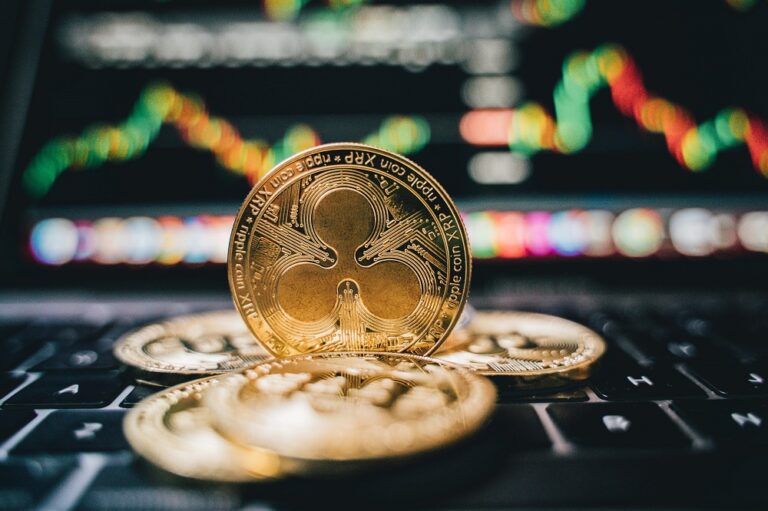When the Ripple platform launched XRP in 2012, the cryptocurrency industry experienced a boom of innovation and demand, attracting more customers and investors. The goal of the project was to establish a superior alternative to Bitcoin, which was already present on the market but struggled with high gas fees and mining costs.
Therefore, the digital asset was set to be more sustainable and be built with payment technology in mind. The fast evolution and circumstances led to the launch of the XRPL Foundation in 2020, a nonprofit entity that contributes to the adoption and improvement of the blockchain. The process includes the global ledger community, which builds on the blockchain and ensures new users know how to buy XRP for their portfolios.
Currently, XRP is flourishing in the business sector, supporting companies’ evolution towards crypto adoption. Let’s see how Ripple achieved this milestone.
XRP benefits the e-commerce and digital services
Experts know that e-commerce is the future of business, especially when tied to digital services that make the customer’s experience faster and more intuitive. Introducing XRP in a company helps speed up transactions anywhere in the world, while delivering immediate control over a company’s cash flow.
Allowing XRP transactions means inexpensive wire transfers that process as fast as possible. This is also helpful for international customers and collaborators, as the fast transaction speed protects both parties from fluctuations in exchange rates.
XRPL supports the link to an innovative infrastructure
In addition to the native token, Ripple has also developed the XRP Ledger, one of the most advanced decentralized technologies in the industry. The ledger is specifically designed for businesses, with experts such as software engineers, server operators, and users behind it for maintenance and optimal operation.
Decentralization is secured across over 120 validators on the network that include universities, exchanges, and individuals. This makes the consensus sustainable and creates new value for long-term growth by building the pillars of use cases, such as tokenization of assets, online gaming, and asset custody.
XRP offers a competitive advantage for fintechs
Fintechs have become a vital component of the economic world, contributing to development by introducing new digital technologies and methodologies. As Fintech continues to rise, the use of cryptocurrencies like XRP can pave the way for faster adoption and a competitive advantage.
That’s because it provides technical support for businesses to integrate stablecoins into their infrastructures while reducing costs. XRP can also expand the reach for third-party payouts in stablecoins or local currencies, and power modern payments to settle in seconds 24/7/365.
XRP can help banks with its digital custody solution
Banks are increasingly tapping into the world of digital assets and infrastructure, enabling their offerings to adapt to evolving customer needs. The XRPL ensures access to a vast digital asset ecosystem so banks can:
- Engage in asset tokenization;
- Secure the status of a digital asset custodian;
- Accessing new asset classes;
Traditional banks are investing in blockchain for benefits such as near-instant settlements, low-cost transactions, and increased transparency. Therefore, they can merge their services with modern ones, addressing the needs of a vast audience. The XRPL provides the technology to achieve modern solutions, such as automated market makers (AMMs) and permissioned decentralized exchange (DEX) features, with ease.
Still, future developments will depend on regulatory clarity
While XRP can benefit businesses considerably, its products and services are still limited within the current regulations. Of course, this applies to multiple innovative blockchains, such as Ethereum, and cryptocurrencies like Bitcoin; however, since XRP targets businesses, they will be affected the most by the lack of opportunities.
The US is establishing new and helpful guidelines for stablecoin issuance and other similar cryptocurrencies. However, it’s essential for financial institutions to accurately comply with the regulations that companies must follow to stay within the law and operate within the framework of the law. According to David Princay, President at Binance.com France, “We continue to see strong interest in crypto from institutional investors and corporate treasuries (and even from sovereign wealth funds), and naturally their primary interest is in Bitcoin as the most established cryptoasset.” This statement strongly outlines the necessity of broader regulation.
XRP has already gone through a rough time with the SEC
The XRP is known for its legal case with the SEC (the US Securities and Exchange Commission) over accusations that Ripple sold unregistered tokens. While the lengthy process has finally ended with Ripple’s victory, some of the court’s rules are establishing the future of asset management. For example, in 2013, the court ruled that XRP and the other cryptocurrencies are not securities when offered on a public exchange. However, when they’re sold to institutional investors, digital assets are securities.
Unfortunately, the lawsuit may have negatively impacted the company’s value, brand image, and the cryptocurrency’s value. Considering it has also been viewed negatively for the crypto market, Ripple’s win has now led to a considerable boom in the token’s value, with a 10% increase following the settlement case.
What will happen to XRP in the future?
XRP has the potential to transform how businesses operate and evolve by providing them with the infrastructure and tools to operate faster and more efficiently than before. Companies must adapt to the rapidly changing times, as customer needs are also shifting and requiring rapid responses when it comes to transactions and purchases; crypto is the solution.
Fortunately, experts believe that XRP will increase in price in the future, given the growing demand. If other factors develop well, such as regulatory oversight, it might be possible for more businesses to leverage the benefits of XRP and address the issues of scalability, centralization, and transparency.
XRP as a business solution
XRP is the native cryptocurrency of Ripple, a decentralized business that targets companies seeking to accelerate their transaction processes, operate more transparently, and stay competitive. XRP is the perfect tool for industries like e-commerce, where speed and costs are always in need of improvement. However, Fintechs and banks can greatly benefit from Ripple’s innovation. Still, the progress of XRP will depend on future regulations over crypto.






